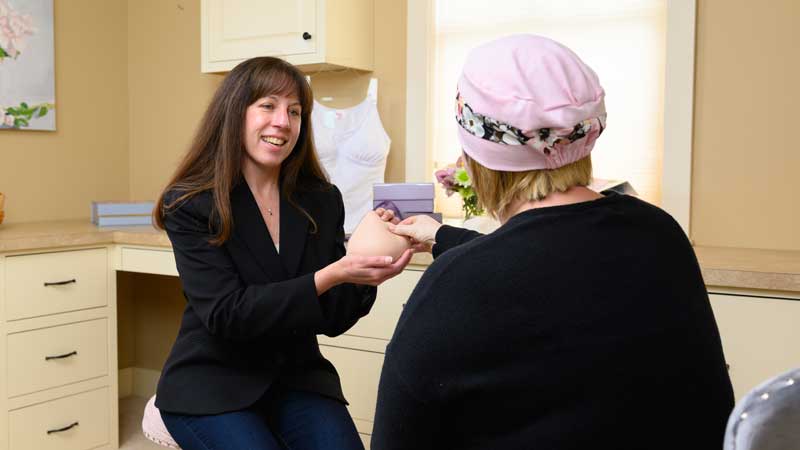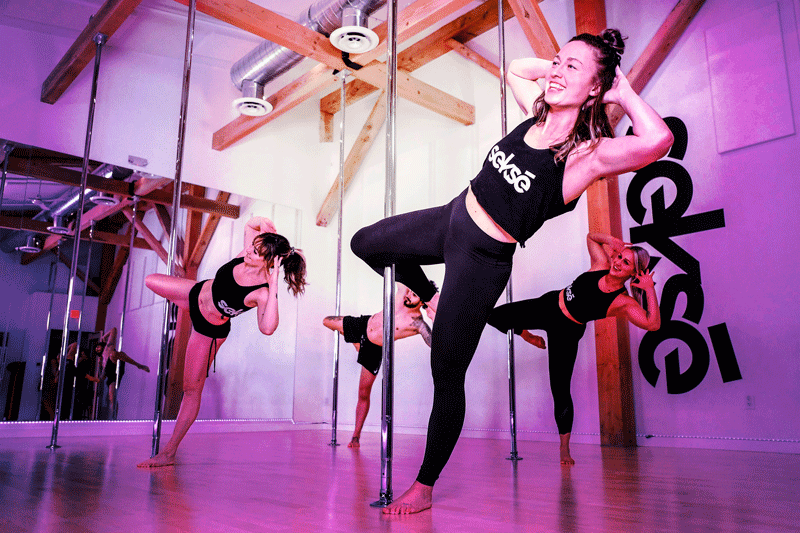Lori and Todd Sensenbach bought the Bend business Mariposa after selling Home Instead, a company that helped seniors in Central Oregon remain in their own homes as they aged. “It has always been important to us to combine what we do professionally as business owners with the ability to impact our community for the better,” Lori said. At Mariposa, a post-mastectomy boutique, they fit clients for prosthetics, wigs and compression products. Bend Magazine sat down with Lori and Todd to learn more about Mariposa’s post-mastectomy services.
What does prosthetic fitting mean and why is it necessary?
Technically, a prosthetic is a manufactured part of the body which replaces a person’s missing body part. Most often people think of limbs lost to some type of accident or injury. The prostheses we work with are breast prostheses for women who have had a mastectomy, which is a surgery removing part or all of one or both breasts. While the surgery alters a woman significantly in a physical way, the emotional effect is often as great or greater than the physical effect. Physically, women’s bodies are made to carry the weight of breasts. Removing that weight from the chest wall can cause posture issues that eventually become pain issues if not addressed. A breast prosthesis adds this weight back. Emotionally, breasts speak to reproductive capacity but are also an obvious part of a woman’s appearance. As much as we try not to worry about what other people think of our appearance, many women are still self-conscious, which is okay. By fitting someone with a breast prosthesis, hopefully we help them with that self-consciousness.
Where do your clients come from? How many people do you serve each year?
Most of our clients come from the three counties of Central Oregon, but also from John Day, Burns, Klamath Falls, etc. We see over a thousand people a year.
What is does an average day in your business look like?
We see a variety of people every day. Some for post-mastectomy fittings, some for wig fittings and others for compression products fittings. The common factor is that each person is experiencing some sort of health challenge that has led them to our door.
What is it like to work with a group of people who may be facing health challenges and the array of emotions that come with that?
It is incredibly rewarding. Our goal is to: “Be Love, See Life, and Shine Light.” If we can turn a negative emotion into a positive emotion, then we feel that we are being love. If we honor this person’s life in the brief time they are with us in our boutique, then we are seeing life. And if we can give them hope in their current health situation, then we are shining light. Each person we meet is so unique, and they are allowing us into a very intimate part of their life. We honor them where they are, physically and emotionally.

What sort of special considerations might we not know about that must be made for women in terms of appearance post-mastectomy?
For a Mastectomy Fitter, our primary goal is to create an appearance of both balance and symmetry. It can be easy with some women and difficult with others, mainly depending on their body type, but sometimes also because of the cancer and what the surgeon was challenged with to restore them to health. Our other goal is for the woman to be comfortable in the products we fit her in. I can think that she looks great, but if she is completely uncomfortable, she will not wear the products, obviously impacting her appearance. I cannot tell you how rewarding it is to finish a fitting and have a woman look at herself in the mirror and say, “I look like myself again,” usually with tears in her eyes.
Are your services expensive?
There is no fee for a fitting. And because of the Women’s Health and Cancer Rights Act of 1998, insurance plans are required to provide coverage for post-mastectomy products. Deductibles and co-insurance do apply, but most of the expense is typically covered by the plan. Prices for mastectomy bras are equivalent to non-mastectomy bras. Prices for silicon prostheses start at over $300 each. But again, the insurance plan covers most of this expense.
As for compression, we carry high-end brands that are more expensive than what you might find at a chain store. Compression can be difficult to put on, especially for people who have decreased strength or other challenges like arthritis. We try to pick products made of fabrics that will make it possible for the person to apply them. We also want the product to fit correctly, and we have found that the high-end products meet this requirement.
What else do you want us to know?
Medicare does not currently provide coverage for compression products. This is the most common challenge we deal with when people come into our boutique because so many of those who need compression are of Medicare age. Thankfully, there is proposed legislation, the Lymphedema Treatment Act, to change this. Medicare also will not provide coverage for custom breast prostheses. This is the only body part that they will not cover a custom product for. For some women we simply cannot achieve balance and symmetry with traditional off the shelf products. Again, there are proposed bills in both the U.S. House and the Senate to get this changed. We would love to see this passed, as I can think of specific patients who would have their lives changed by a custom prosthesis.





